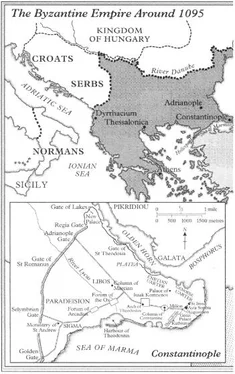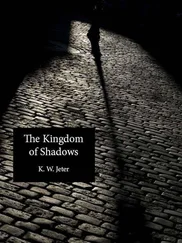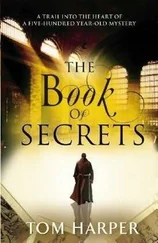Tom Harper - The mosaic of shadows
Здесь есть возможность читать онлайн «Tom Harper - The mosaic of shadows» весь текст электронной книги совершенно бесплатно (целиком полную версию без сокращений). В некоторых случаях можно слушать аудио, скачать через торрент в формате fb2 и присутствует краткое содержание. Жанр: Исторический детектив, на английском языке. Описание произведения, (предисловие) а так же отзывы посетителей доступны на портале библиотеки ЛибКат.
- Название:The mosaic of shadows
- Автор:
- Жанр:
- Год:неизвестен
- ISBN:нет данных
- Рейтинг книги:3 / 5. Голосов: 1
-
Избранное:Добавить в избранное
- Отзывы:
-
Ваша оценка:
- 60
- 1
- 2
- 3
- 4
- 5
The mosaic of shadows: краткое содержание, описание и аннотация
Предлагаем к чтению аннотацию, описание, краткое содержание или предисловие (зависит от того, что написал сам автор книги «The mosaic of shadows»). Если вы не нашли необходимую информацию о книге — напишите в комментариях, мы постараемся отыскать её.
The mosaic of shadows — читать онлайн бесплатно полную книгу (весь текст) целиком
Ниже представлен текст книги, разбитый по страницам. Система сохранения места последней прочитанной страницы, позволяет с удобством читать онлайн бесплатно книгу «The mosaic of shadows», без необходимости каждый раз заново искать на чём Вы остановились. Поставьте закладку, и сможете в любой момент перейти на страницу, на которой закончили чтение.
Интервал:
Закладка:

Tom Harper
The mosaic of shadows

For a thousand years after the fall of the West, the empire of Byzantium, centred on the great city of Constantinople, perpetuated the living, unbroken legacy of the Roman empire. It reached the peak of its latter-day power in 1025 under the Emperor Basil II, but a dozen weak and corrupt successors squandered his accomplishments until the very existence of the empire was under threat. In these circumstances, a dynamic, young leader named Alexios Komnenos rose to the imperial throne from a cabal of the powerful military families, and through hard-fought campaigns and cunning diplomacy managed to reassert the strength and glory of Byzantium. But he was not unopposed: Turks, Normans, Bulgarians, Germans and Venetians constantly pressed at his borders, while contenders from within his own and rival families schemed recklessly to usurp his throne. With the Turks in particular advancing ever further into the hinterland of Asia Minor, Alexios was forced to beg the estranged Pope in Rome to provide soldiers to buttress the faltering Byzantine armies. Much to his surprise, and subsequent alarm, he got them: the Pope preached the first crusade, and tens of thousands of western knights mobilised to descend on Byzantium .
The language of Byzantium was Greek, but through all its history its citizens referred to themselves as Romans. Any peoples beyond the empire’s borders were considered barbarians .
Why have our two consuls and praetors come out today wearing their embroidered, their scarlet togas?
Why have they put on bracelets with so many amethysts, and rings sparkling with magnificent emeralds?
Why are they carrying elegant canes beautifully worked in silver and gold?
Because the barbarians are coming today and things like that dazzle the barbarians.
C P Cavafy1
It was evening when the axe-wielding barbarians arrived at my door. The sun was sinking behind the western ramparts, casting the sky and all below it in copper. In the windless air the canopies and awnings of the queen of cities were still as the myriad towers and domes above them, yet by only inclining an ear you would have met the gentle, sustained notes of the chants which swelled out from the hundred surrounding churches. All day the tide of humanity had run high in the streets, the denizens of Byzantium gathering to mark the feast of Saint Nikolas and to watch the Emperor process through their midst; now that tide was slowly ebbing, slipping back into the arcades and tenements from whence it had come. I sat on my roof and watched them go, sipping a welcome cup of wine after the week of fasting.
Zoe, the younger of my daughters, announced the barbarians. From the corner of my eye I saw her face emerge from the opening at the top of the ladder, concern and puzzlement creasing the smooth skin below her piled ringlets.
‘There are men to see you,’ she said breathlessly, still standing on the ladder. She paused, reconsidered. ‘Giants. Titans. Three of them, with enormous axes — and one like Prometheus, with a beard of fire.’
My daughter has always been given to poetry, though I notice it more often now.
‘Will they fit through the door?’ I asked. ‘Or should I mount my winged steed and fly up to look them in the eye?’
Zoe pondered this. ‘They can come through the door,’ she allowed.
‘And through that opening you’re standing in?’
‘Perhaps. But they might break the ladder,’ she added. ‘Then you’d be stranded up here.’
‘Then they can buy me a new one.’
Zoe’s pouting face vanished, and a riotous noise erupted from the room below. Perhaps she did not exaggerate, for I could hear an almighty stamping, the tread of men who wield their feet like hammers and would flatten even the seven hills given half a day’s march. The ladder trembled, and I could imagine the rungs bending like fresh boughs under the burden of that weight. I waited for the wrench of splintered wood and tumbled watchmen, but my ladder — solid, Bithynian oak — held fast, bore them up out of the darkness and into the fresh, evening air on my roof.
There were three of them, as Zoe had said, and as she had said they were giants. All wore long coats of mail hanging to their knees, girded with broad leather belts and hung with heavy, iron maces. On their shoulders they carried great twin-headed axes, which not even the perilous ascent of the ladder had unseated. Even without the insignia of their legion, a blue square of fur-trimmed cloth fastened below their necks, they were unmistakable. Varangians, elite guardsmen of the palace and protectors of the Emperor. Though I rose slowly to greet them, the wine in the cup I held was suddenly much agitated.
‘You are Demetrios Askiates, the revealer of mysteries?’
The nearest of the three giants spoke. Like his companions, he was fair-skinned, though our sun had ravaged his complexion everywhere save by the rim of his collar, where it was still the shade of milk. His hair was the colour of fire, such as nature never bestowed upon our people; a mane hanging over his ox-like shoulders. He was, in short, a perfect specimen of that race which inhabits the frozen island of Thule — Britannia, as our ancestors called it when they held sway there — though he was long since departed, I thought, judging by the confident edge to his Greek.
I nodded an answer to his question, feeling the absurdity of my self-styled epithet before this brutal, unadorned power. The Varangian, I thought, would not unveil a mystery: he would crush it to powder with his mace, or slice through it with a stroke of his axe like Alexander at Gordion. What, I wondered nervously, would he do with me?
‘You are called to the palace,’ he said. Where his left hand played along the haft of his axe, I noticed a string of notches in the dark wood, unbroken almost from butt to blade. Were those the number of his victims?
I nodded a second time, and then — in my confusion — involuntarily twice more. ‘Why?’
‘That,’ said the Varangian heavily, ‘will be revealed when you’re there.’ Under the thick beard, I thought I saw his mouth twitch.
There was still light in the sky as we came outside, but already the shopkeepers’ tables were drawn indoors, and the crowds of the day reduced to a scattering of hurried figures. Few would care to be caught abroad after dark, when the Watch came out. And fewer still would want to be found near the phalanx of guardsmen — a dozen more — who were, to my shock, drawn up in the street outside my house. That would do little for my reputation among doubtful neighbours, I thought ruefully. No wonder there were no children playing games in the road, no fruit-sellers and sweet-merchants hawking their wares.
It was some half hour’s walk to the palace, but with a company of armed Norsemen at my back, and their red-headed captain silent before me, it felt ten times longer. Mingled glances of pity and suspicion fixed upon me from the passers-by: he did not wear chains , they observed, but nor did he dress as one who warranted such a retinue . Everywhere we walked the day was fading, with only lingering scents to tell what had passed: the stench of tanners and dyers, the warm homeliness of the bakers, the blood of the butchers and — as we at last reached the head of the avenue — the thick sweetness of the perfume-sellers.
The marbled arcades of the Augusteion were ahead of us now, with the palace gate beyond it and the vast dome of the great church on our left. The questions which clawed at my mind had reached a ringing intensity, yet were suddenly thrown into still greater confusion as the captain turned abruptly to his right, away from the palace and down a long street whose wall, I could see, was formed by the vast rim of the hippodrome. A greaved forearm against my shoulder steered me helplessly down into the darkness after him.
Читать дальшеИнтервал:
Закладка:
Похожие книги на «The mosaic of shadows»
Представляем Вашему вниманию похожие книги на «The mosaic of shadows» списком для выбора. Мы отобрали схожую по названию и смыслу литературу в надежде предоставить читателям больше вариантов отыскать новые, интересные, ещё непрочитанные произведения.
Обсуждение, отзывы о книге «The mosaic of shadows» и просто собственные мнения читателей. Оставьте ваши комментарии, напишите, что Вы думаете о произведении, его смысле или главных героях. Укажите что конкретно понравилось, а что нет, и почему Вы так считаете.












